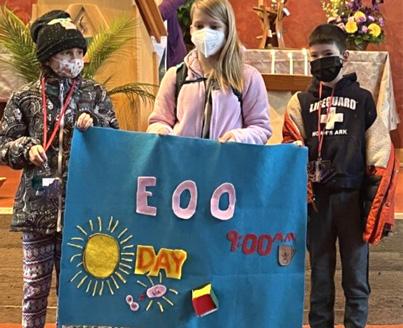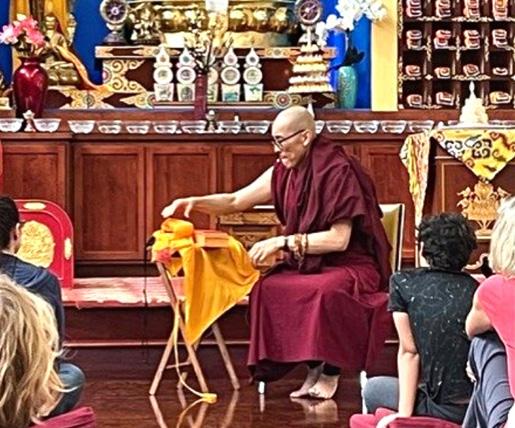
1 minute read
class offerings
for 4th & 5th graders
Bibleodeon
Advertisement
Participants are introduced to biblical scriptures by presenting the best-known Hebrew and Christian stories with fun and interactive games, such as investigating the Cain and Abel crime scene, learning about famous women in the Bible, and solving the “Mystery of the Day.” They explore connections between biblical events and UU principles, between biblical ideas and their own lives.
EXPLORING OUR ORIGINS / TOOLBOX OF FAITH

We begin the year with Exploring Our Origins (EOO), looking at evolution through a lens that promotes a sense of wonder and awe. EOO provides children the intellectual and spiritual space to develop a sense of their own place within the cosmic narrative of the universe and life on Earth. Participants come to understand themselves as part of a much larger natural history that began with the birth of the universe. They conclude the first half of the year with a deeper understanding of what we mean when we say “we are all made of stardust!”
In January, we shift to the Toolbox of Faith curriculum, which invites fourth- and fifth-grade participants to consider how they might use the principles of our Unitarian Universalist faith as tools to build their own religious and spiritual grounding. Each session uses a tool as a metaphor for an important quality of our faith such as reflection (symbolized by a mirror), flexibility (duct tape), and justice (a flashlight). Children and leaders gain insight into what makes our faith important in their lives, and how those tools help them to grow.

For 6th Graders
Building Bridges
Building Bridges is a world religions program that deepens youth’s understanding of the diverse world in which they live. It seeks to broaden their knowledge of humanity and embolden their spiritual search. During the year they explore the beliefs and rituals that are the pillars of Judaism, Christianity, Buddhism, Islam, Hinduism, and other religions. We welcome people from other faiths to share their beliefs with us, and we visit numerous places of worship outside of FUS. Some flexibility in scheduling is required to accommodate these visits.









